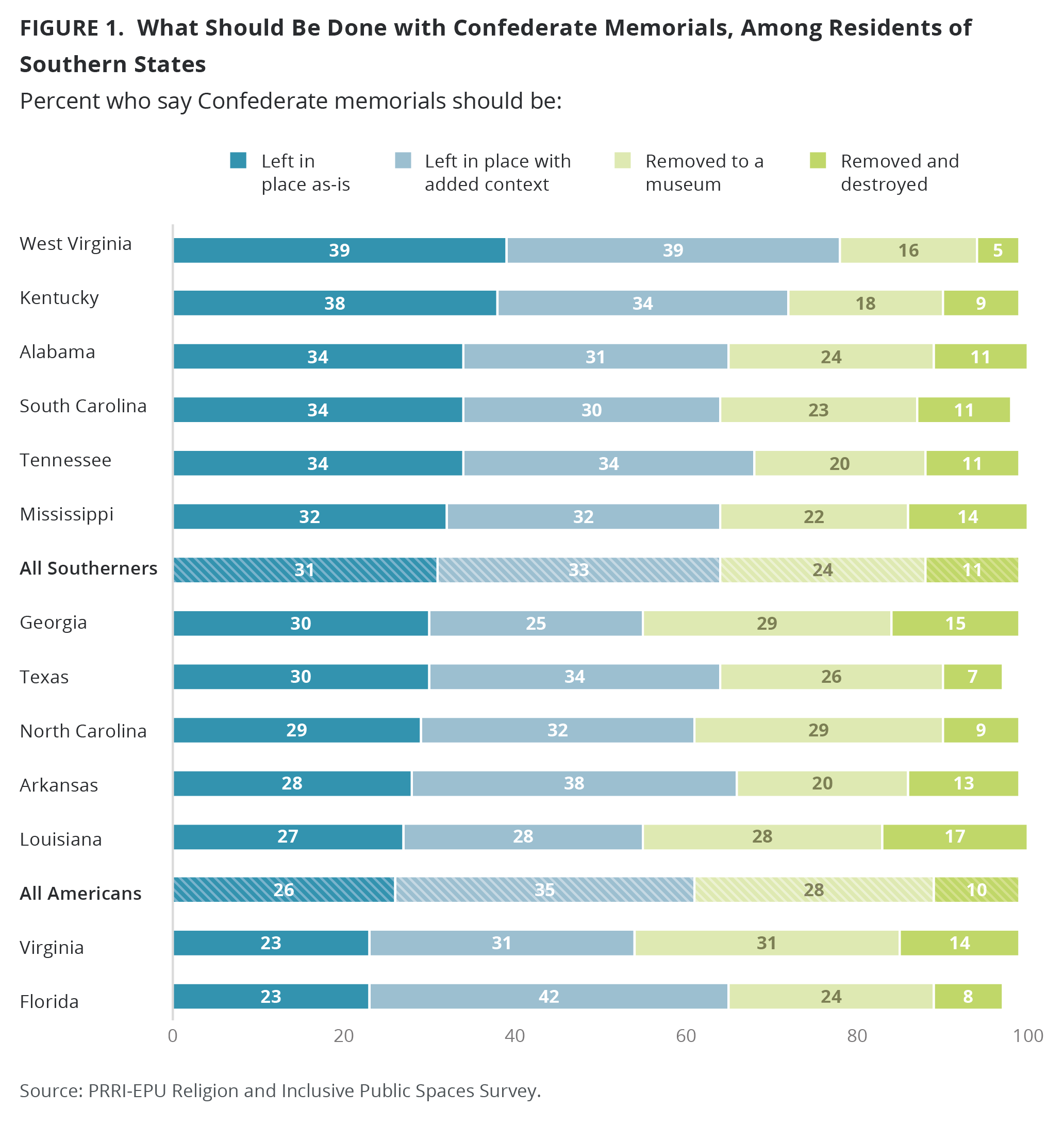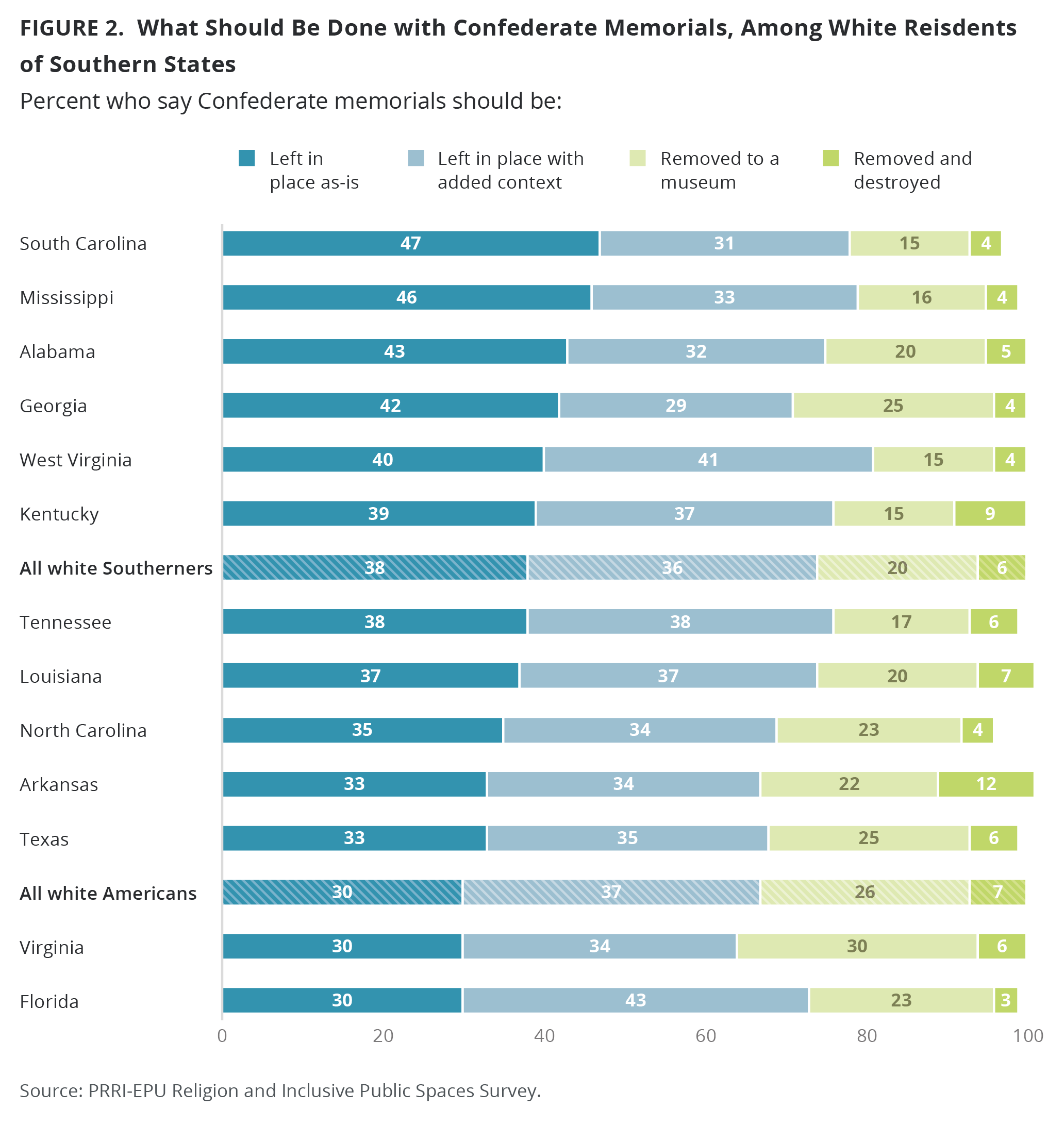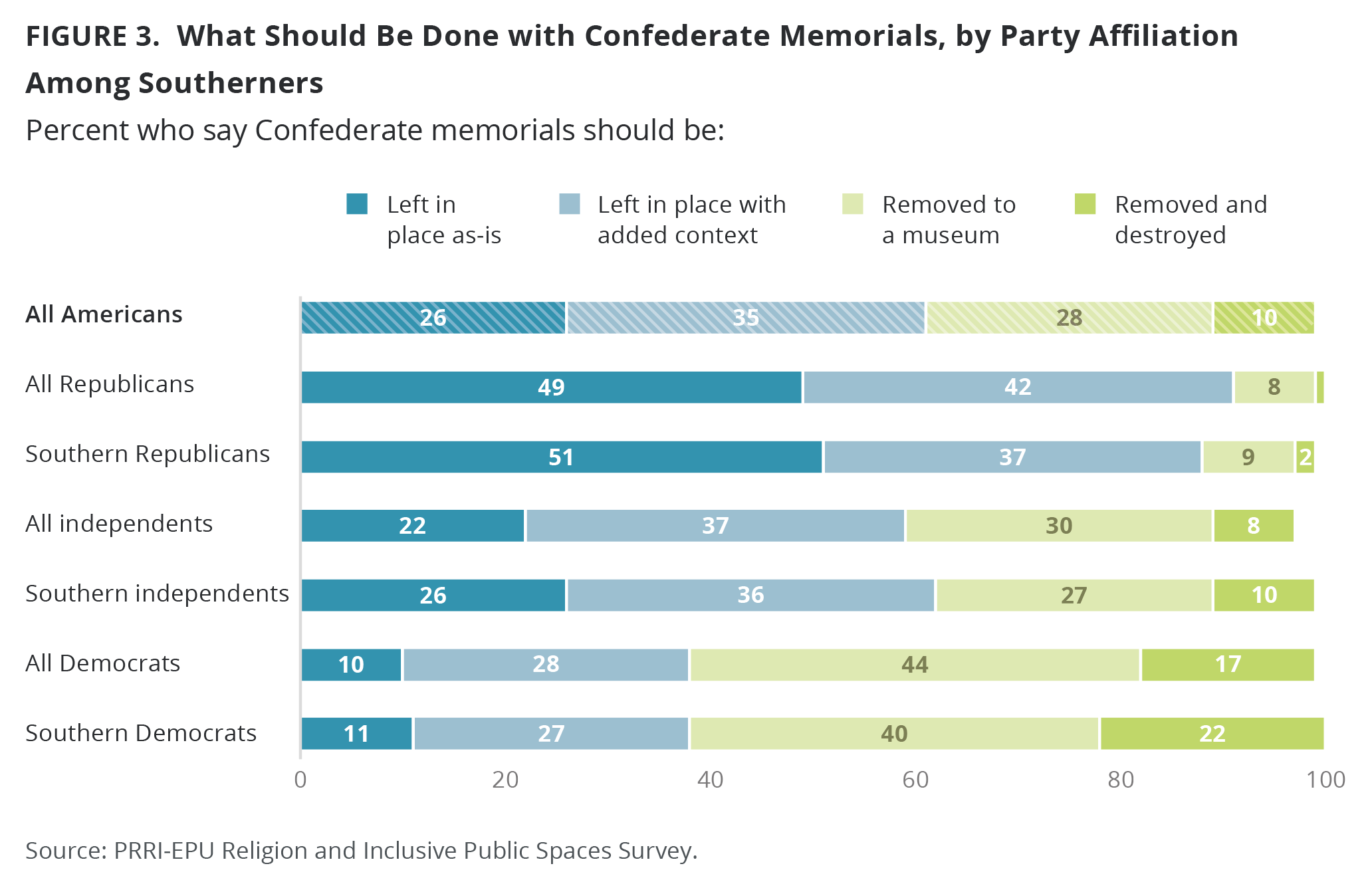PRRI and E Pluribus Unum recently released findings from a national survey examining Americans’ divisions in attitudes toward preserving the legacy of the Confederacy and how public spaces can be made more inclusive when Confederate memorials are removed. Additional oversamples in 13 Southern states show how attitudes toward the legacy of the Confederacy have largely become nationalized and polarized.[1] Support for a path forward to reform public spaces used to memorialize the Confederacy is similar, not just in the Southern states, but also outside the region.
Currently, just one in four Americans (26%) say that Confederate memorials should be left in place as they are today. An additional 35% say such memorials should be left in place but have added context about the legacy of slavery and discrimination, 28% say they should be removed and placed in a museum, and 10% say Confederate memorials should be removed and destroyed. Among Americans in the South, these shares are broadly similar: 31% say monuments should be left in place as-is, 33% say they should be left in place with additional context, 24% say they should be removed to a museum, and 11% say they should be destroyed.
Across states in the South, support for removing Confederate monuments ranges from more than four in ten residents of Virginia (45%), Louisiana (45%), and Georgia (44%), to around one in four residents of Kentucky (27%) and West Virginia (21%). There are no Southern states where more than four in ten residents want to keep Confederate monuments in place as they are. Support for keeping monuments in place, as they are, is highest in West Virginia (39%), Kentucky (38%), Tennessee (34%), South Carolina (34%), and Alabama (34%).

White Americans are somewhat less likely than Americans overall to support removing Confederate monuments: 7% say they should be removed and destroyed, 26% say they should be removed, 37% say they should be left in place with additional context, and 30% say they should be left in place as-is. White Southerners express somewhat similar views, though they are slightly less likely than all Southerners to say monuments should be moved to a museum (20%), and correspondingly more likely to say monuments should be left in place as-is (38%). Just 6% of white Southerners say monuments should be removed and destroyed, and 36% say they should have added context. These patterns are broadly similar across Southern states, with the exception of nearly half of white residents of South Carolina (47%), Mississippi (46%), and Alabama (43%) who say monuments should be left as-is.

Partisan groups in the South express essentially identical views on what to do with Confederate monuments as their national counterparts. Half of Republicans both overall (49%) and in the South (51%) want to leave monuments in place as they are, while 42% of Republicans overall and 37% of Republicans in the South want to leave monuments in place with additional context. One in ten Republicans nationwide (8%) and in the South (9%) say monuments should be removed to a museum, and just 1% of all Republicans and 2% of Southern Republicans say monuments should be removed and destroyed.
Democrats in the South (22%) are slightly more likely than Democrats nationwide (17%) to say that Confederate monuments should be removed and destroyed. Roughly four in ten Democrats nationwide (44%) and in the South (40%) say monuments should be removed to a museum. Just under three in ten national Democrats (28%) and Democrats in the South (27%) say monuments should be left in place with added context, and one in ten nationally (10%) and in the South (11%) say monuments should be left in place as-is.
Independents nationally and in the South do not differ meaningfully from Americans as a whole.

[1] The 13 Southern states include Alabama, Arkansas, Florida, Georgia, Kentucky, Louisiana, Mississippi, North Carolina, South Carolina, Tennessee, Texas, Virginia, and West Virginia. All states have a minimum sample size of n=300.

